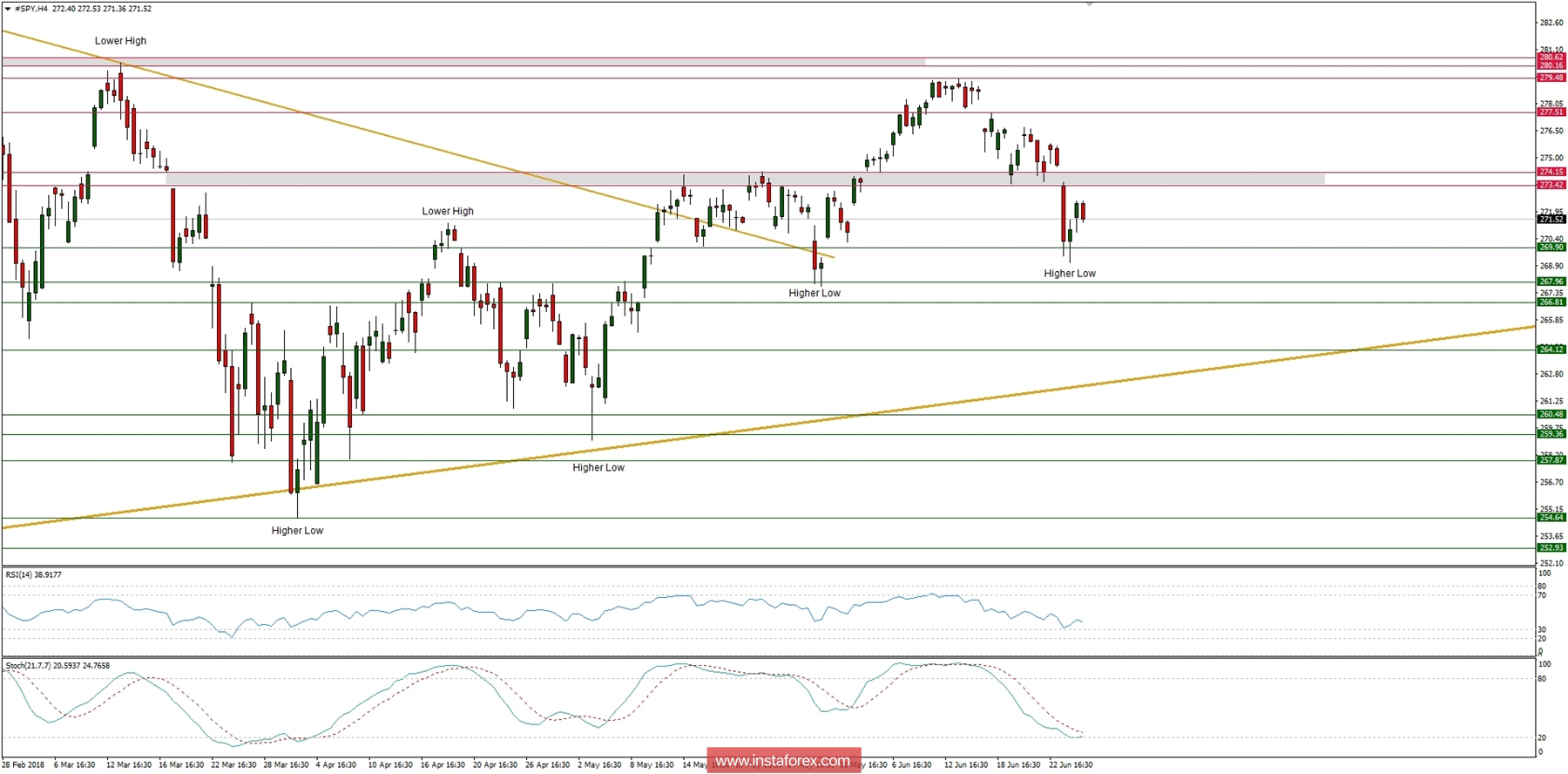Wall Street on Tuesday was supposed to show that the Monday discount scale was too big. In addition, the investors still had at the back of their heads that Donald Trump might change his mind at any time. They may have also suspected that the Monday drops in the indices would sober the US president. All this helped the bulls in Europe before the session, even though there was nothing left of the increases on these exchanges.
In the US, the S&P/Case-Shiller report was published on house prices in April and the June consumer confidence index provided by the Conference Board. The latter was able to influence the behavior of the markets quite strongly, but the reactions have been insignificant for several years. So it was this time. Let us just note that the S&P/Case-Shiller house price index in April increased by 6.6% y/y (expected growth by 6.8%). The Consumer Confidence Index - Conference Board amounted to 126.4 points. (it was expected to remain at the level of 128 points).
Wall Street started the session very uncertainly, but as it often happens after the session in Europe, the bull camp took over and the indexes began to grow. It helped a large increase in the price of oil and a large increase in the price of General Electric shares (resells its healthcare unit) and a bounce on high-tech companies' shares, which were overestimated on Monday. It is true that at the end of the session the supply attacked, but a small increase was saved.
One could say that the approaching end of the first half of the year must also help the holders of the campaign, despite the fact that nothing has changed on the front of the trade wars. On the contrary, Donald Trump threatened to quickly raise customs duties on cars from the EU. The Wall Street bull camp is definitely not yet dead, which, unfortunately, increases the threat of unleashing a real commercial war. The assets that will gain in case of this scenario are Gold, Yen, Franc and US Dollar.
Let's now take a look at the SP500 technical picture at the H4 time frame. The market has dropped below the important technical support at the level of 273.42, made a low at the level of 269.05 and now it is bouncing towards the level of 273.42 again in order to test it from below. A successful test (a rejection of this level) will put the bear in control over this market and lower lows should be expected. The next important technical support is seen at the level of 267.96 and 266.81. Weak momentum supports the general bearish bias, but the oversold market conditions indicate a short-term bounce first.






















